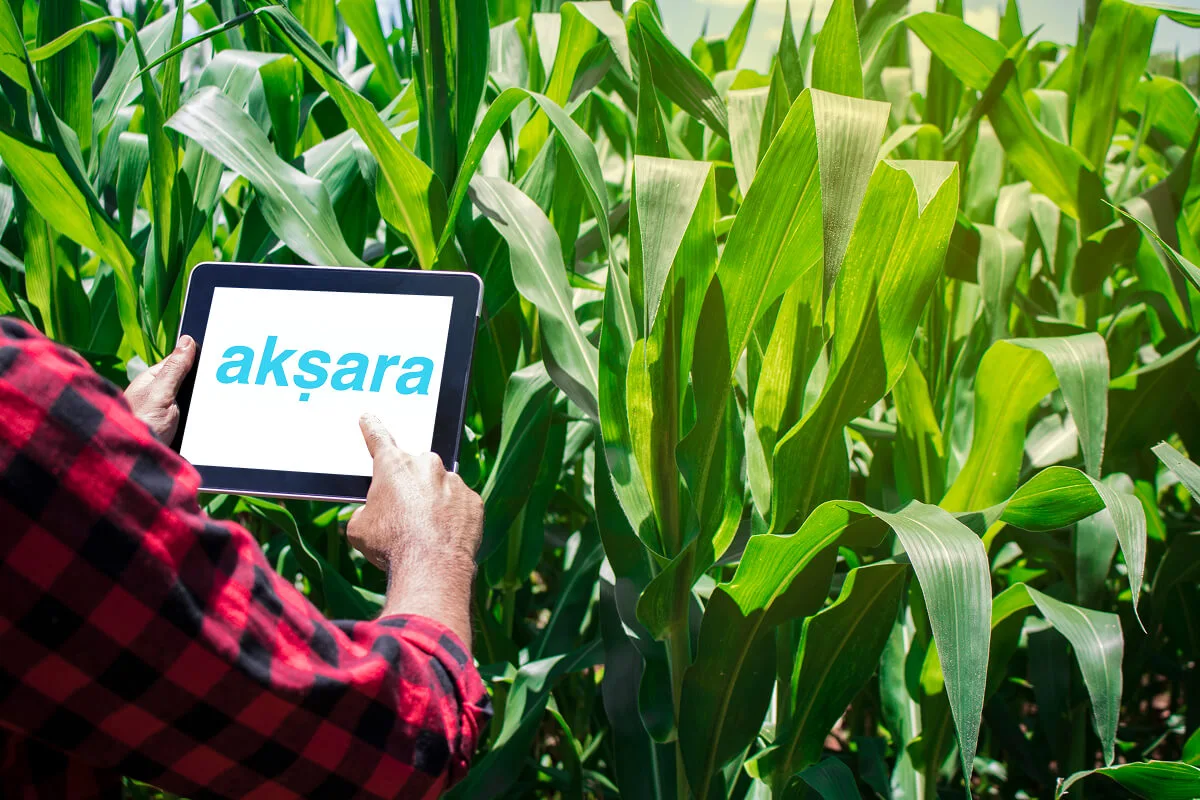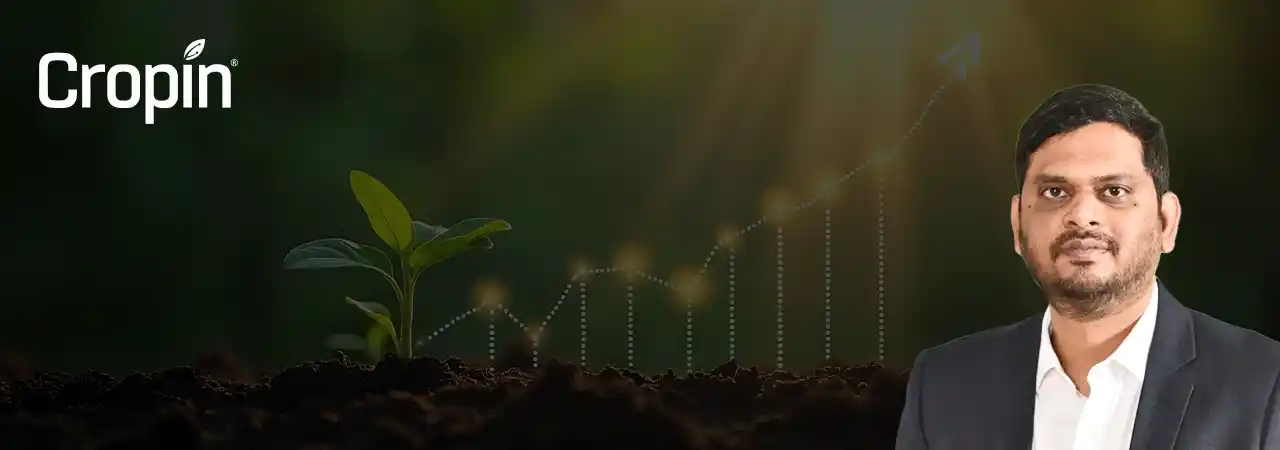Synopsis:
This blog explores solutions for overcoming the adoption barriers in Agtech, particularly for underserved smallholder farmers. It outlines Cropin’s innovative response: ‘akṣara (Akshara),’ an open-source Micro Language Model. Here, we discover the potential of akṣara to dismantle knowledge barriers and empower smallholder farmers to adopt Climate Smart Agriculture and Regenerative Agricultural practices and thrive. It further discusses this innovation and explains how akṣara, tailored for the agriculture domain, is more factually relevant than globally available general Large Language Models.
Agriculture, the world’s oldest occupation, is experiencing remarkable progress through technological advancements. While technology adoption already demonstrates the potential for increased farm productivity and resource efficiency in some regions, a vast disparity exists.
A 2022 McKinsey study surveying over 5,500 farmers across Asia, Europe, North America, and South America revealed a stark divide in agtech adoption rates. While over 60% of European and North American farmers leverage agtech, adoption in Asia remains at a mere 9%.
A turning point: akṣara (Akshara) is now here!
What is an open-source large language model?
What is akṣara (Akshara)?
- akṣara‘s alignment with key responsible AI principles
- reduce biases common with general LLMs
- promote the use of AI to empower sustainable agricultural practices (biological controls, companion planting, soil & water conservation, etc.)
- equitable distribution of its benefits across farming communities in the Global South
- Compile the package of practices (PoP) for the crops of interest.
- Generate Question & Answer (Q&A) pairs using OpenAI’s GPT-4-Turbo and handcrafted Package of Practices dataset.
- Use the generated Q&A pairs to train the Mistral 7B-Instruct model at 16-bit.
- Fine-tune the model with the QLoRA (Quantized Low-Rank Adaptation) technique.
- Compress to 4-bit precision (uses only one-third of the required GPU memory).
- Use RAG for question answering to ensure consistent and accurate responses drawn on verified agri-data from relevant repositories.
- RAG uses external knowledge from the context and Q&A base to derive extra information to answer user prompts.
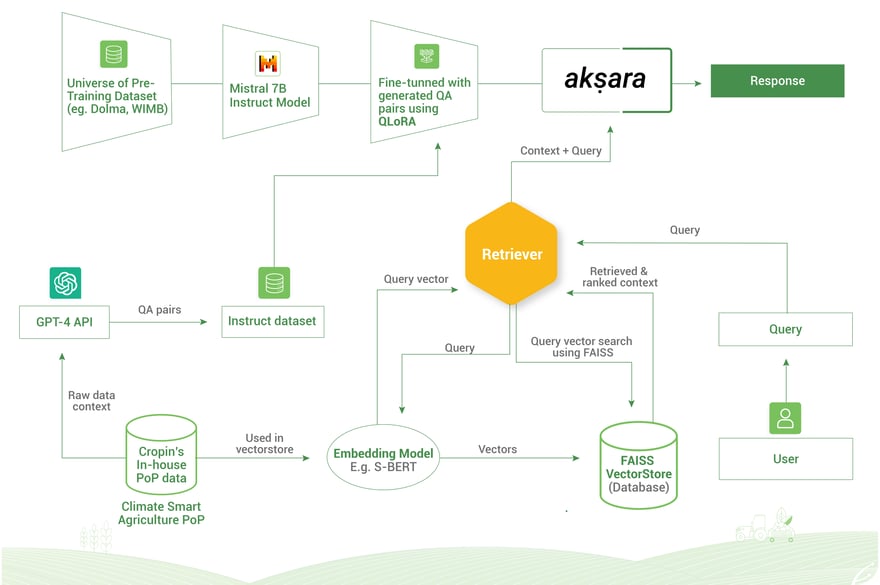
How can micro language models help smallholder farmers?
Example of a query and response from ‘akṣara.‘
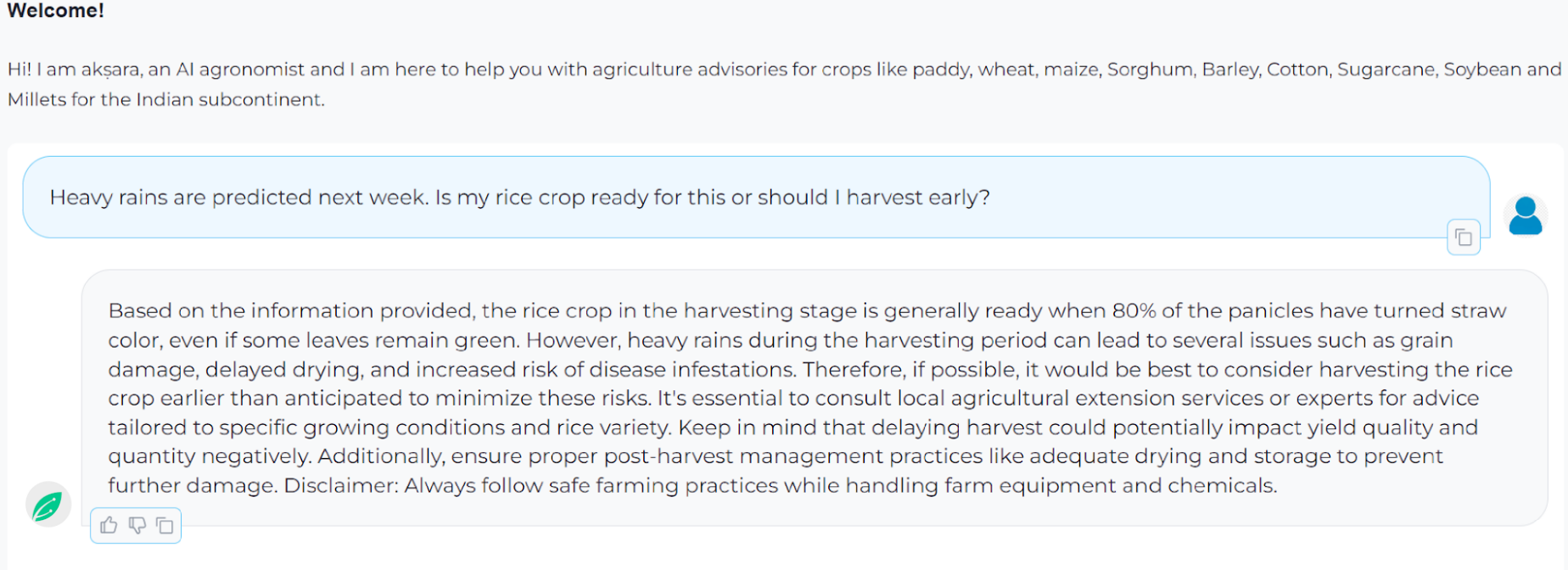
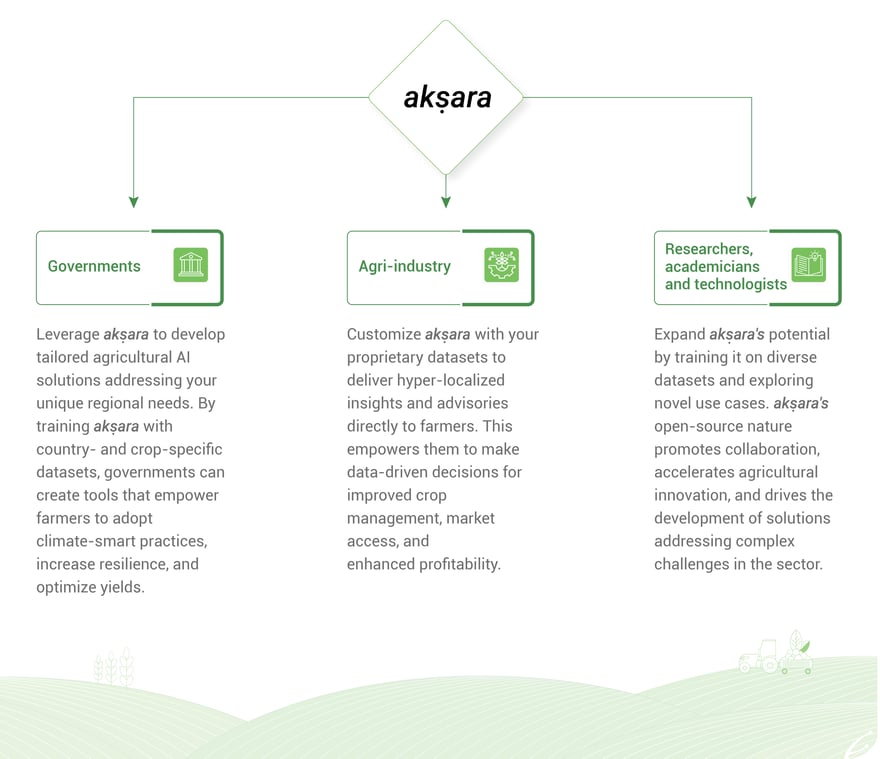
Join the movement! access aksara on hugging face
Collaborate, train on your datasets, and share feedback outcomes with this community as we double down on making AI accessible to the global farming community.

